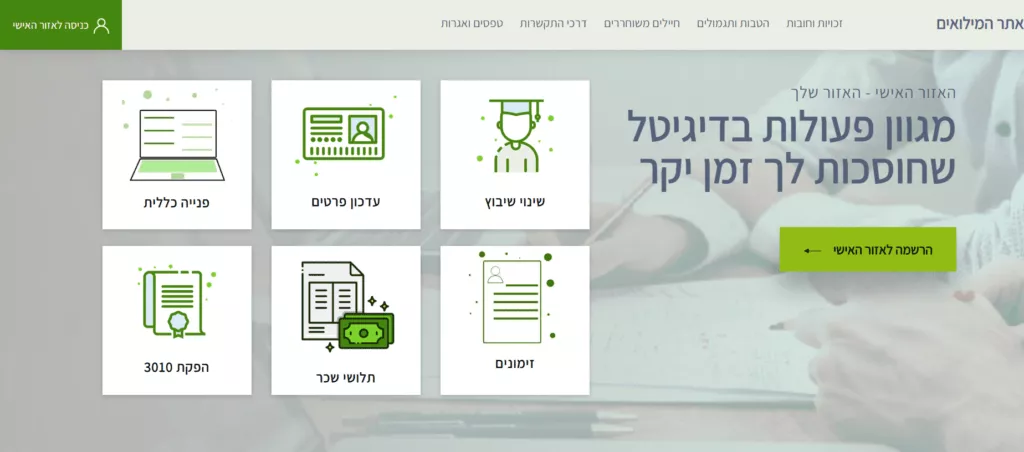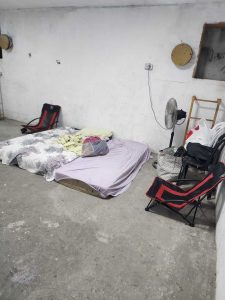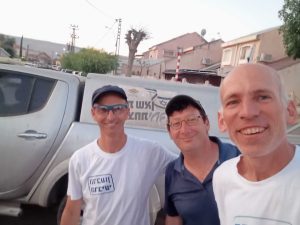I am driving on route two (2) northbound with a car full of clients that have just arrived from a long trans-Atlantic flight. This is their first time in Israel, and they are excited to get started. They have been planning this family trip for over a year to detail: what season of the year to travel, where to stay, what to see, what to pack, what to leave at home, and many other important details. Israel is an exciting destination, and their itinerary reflects their interest in ancient historical and religious sites, breathtaking landscapes, and outdoor activity opportunities, and every opportunity they can get to immerse themselves in the vibrant rich culture the modern State of Israel has to offer. It is a planned trip with some room for “going with the flow” and improvisation.
After a brief get to know each other- in the person of course, hay we have been planning this together for over a year, and a quick coffee stop, we set out for the north. Their flight arrived mid-morning, and our plan is to see some sites along the northern coast before settling at our hotel.
And then reality hit. It did not hit in the form of a traffic jam, yet this was expected. Neither was it in the form of a rude Israeli driver that cut us off while blowing his horn with one hand and pulling a jester at us with the other, screaming inside his car- clearly not enjoying the conversation he is having on his loudspeaker. It didn’t even hit when they figured out that the black coffee they ordered was not the filter coffee they are used to, but rather dark black strong Turkish coffee also known in Israel as Black Coffee or Botz (mud) coffee, besides the better taste, it left them with pieces of grounded coffee stuck between their teeth.
Reality did not hit in the form of any violence either. The news has not been reported in a while about any terror attack in a city center, nor have we had in the past couple of weeks incoming missiles from the Gaza Strip. Our borders have been quiet, even on the northern border with Lebanon- despite the usual rhetoric on the other side of the fence.
It wasn’t even a hot day, mid-80’s, which is more than reasonable for the end of July, where it could be in the mid 90’s- 100’s for days in a row.
All and all it was a fabulous day, the sun was shining, the sea was calm and blue, and we were cruising north on the coastal road.
Reality hit in the form of a phone call. As it appeared on my screen it was from the Army, I apologized I had to take the call and answered on my loudspeaker. Realty hit in the form of a sweet young female voice that introduced herself as my army reserve unit liaison, calling to run through some information with me. I acknowledged it, no problem. She starts to ask some questions I need to answer, so she can check the data she has and update any changes. She begins with my name, called by Snir, the first name that appears on my Israeli I.D., a distortion of my given name Shneur, made by the clerk at the office of the ministry of internal affairs when we registered upon making Aliyah in 1986. I have never found the need or the time to change it. As usual, my answer is “yes- it is I, call me Zalman, my second name, and the one I go by on a daily basis”. Next comes my Israeli I.D. number, my IDF (Israel Defense Forces) Army I.D. Number, where I live, and my family status.
Toward the end of the conversation, the question always comes up “In the case of an emergency or death, who do you want us to notify?”. Then there is a pause. It is an important question and unfortunately can be relevant. So, the answer always is my parents and wife, or should I say my wife and my parents. I never know how to get this one right. I ask her who she has on file- and they are both there. We verify their contact information, and I don’t worry about who comes before who on the computer.
All and all, this conversation takes around 2 min. As I hang up, my clients ask me if all is O.K. “All is just fine- I answer, just making sure my contact information is correct”.
I am still registered for Army reserve duty, as are most of the male citizens, and many females, of the State of Israel between the ages 21 and 45. It is not out of the ordinary. It is part of our lives, for better or worse. Depending on what your role was during your active duty, you are assigned to your reserve duty. This assignment can change over time, due to the needs of the army, your physical situation or family status, or professional development that can be used and harnessed by the army. Personally, after many years of active duty in the reserve, I was moved to a regional unit near my house, so speaking to someone in the army over the phone- can be a reminder of my duty.
Two days later, same party, same car, this time we are making our way up to Jerusalem. After a long day, we hope to beat the traffic and arrive in Jerusalem before sundown and get a glimpse of the city from one of the magnificent overlooks on Mount of Olives. As we are driving up route 1 to Jerusalem, we pass the skeletons of the convoys that fought along the road during the 1948 War of Independence, reminding us of the price that was paid to hold on to the City, and the hardship of arriving to Jerusalem through history.
Once again, my phone rings, and again the screen says it is from the Army. Once again, I find myself apologizing that I need to take the call. But this time it is not the sweet voice of a young soldier, yet a computerized recording. “If your name is Snir, please press 1”, I press 1. “Please enter your military I.D. number”. I turn to the person sitting next to me and ask them to punch in the number 6317301 and then the # key. Then the automatic recording says: “Soldier, thank you for participating in a phone drill/ exercise, there is no need for you to arrive at your base”, and the call hangs up.
“What is that all about?” they ask me. Culture immersion, I think to myself. “You have just participated in an army reserve exercise”- I answer, as I accelerate so we will not miss our Jerusalem sunset.




